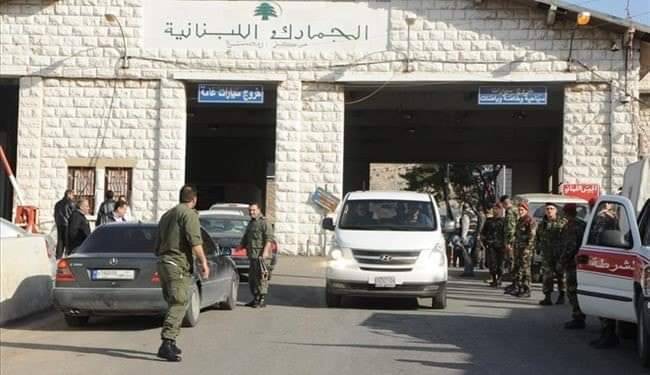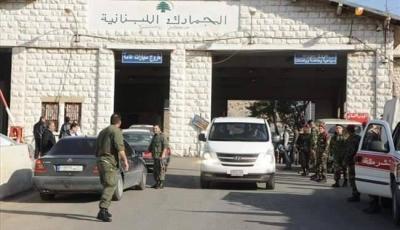The responsibility of the government lies primarily in enforcing laws, especially those aimed at preventing smuggling, eliminating monopolies, and pursuing currency speculators. The current chaos is affecting the essence of the Lebanese entity and its national, even existential, security. More than half of what Lebanon imports in goods and commodities is being smuggled abroad, with this outflow not limited to Syria but extending to four neighboring regional countries. The main motivation behind this is the enormous profits made by smugglers, who share these gains with influential figures that provide them protection. Importantly, the smuggling mafias are diverse in their religious and political affiliations.
In Lebanon, there are 1.25 million families in addition to 375,000 families of Syrian refugees (equivalent to 1.5 million displaced individuals). More than 80% of households in Lebanon live below the poverty line. If we consider the average monthly income of a Lebanese family to be 400 US dollars (a slightly inflated figure), and the income of a Syrian family in Lebanon to be 200 US dollars, the total consumer capacity of residents in Lebanon does not exceed 6 billion US dollars annually.
When we compare this figure to the reported import figures from the Lebanese Customs website, we see that Lebanon imported 13.64 billion US dollars in 2021 (from January to December) and 10.5 billion US dollars in 2022 (from January to July). The question arises: who consumes the difference (approximately 7 billion US dollars annually) in the volume of imported goods that exceed the purchasing power of residents in Lebanon (in 2021) by twice, and about double in the first seven months of 2022? The answer is simple: the surplus is for smuggling!!!
Where is the Lebanese government and its regulatory agencies amid this deadly chaos? Lebanon imports more than twice what its population needs, and despite that, there is a shortage of everything due to smuggling! Only price increases seem to deter smuggling, which some are calling for through the dollarization of all sectors.
The US dollars used for imports are secured from the Lebanese market through the Sayrafa platform or the black market. The Banque du Liban contributes to securing part of these dollars. Instead of serving the Lebanese citizen, these dollars are shared with the people of the region at a time when Lebanon lacks the dollars to maintain telecommunications networks, import fuel, pay for medicines and flour, meet international subscriptions, and pay foreign diplomats' salaries.
The problem does not end there. A trader who receives payments in Lebanese pounds (at the black market rate, of course) buys US dollars from the Sayrafa platform and the black market and claims to be importing with the money he transferred abroad. Here emerges the essential question: who verifies that this trader is actually importing goods worth what he transferred abroad? The answer is no one! This avenue also serves as a means for smuggling dollars abroad under the guise of being fresh dollars, while they are not because they come from the Banque du Liban and the Lebanese market, which could benefit the Lebanese citizen who could purchase numerous goods if these dollars remained in the market. Along the same lines, where do the smugglers place the dollars from the products they smuggle and receive payment for? Do they remain abroad? This, too, becomes another outlet for smuggling dollars abroad. Unfortunately, the draft capital control law does not address these two points, which allow for several billion dollars to leave annually without oversight!
From what has been presented, we see that the continued smuggling of goods and dollars under the guise of imports will inevitably drain Lebanon of whatever remaining dollars it has. Here lies the responsibility of this government or any other government that may be formed, as it is crucial to stop this significant hemorrhage for the sake of the citizens.
#### Funding Imports
From where is this import being financed? This is a question that must be answered, especially since the political reality does not indicate an imminent end to the crisis. The Banque du Liban previously secured dollars for imports, as shown by the cash flow figures from the central bank to commercial banks (93 billion dollars over five years from 2014 to 2019 were allocated to fund traders' imports). This import should have been financed by exports, but the trade deficit has prevented this, as figures show it recorded significant deficits from 2013 to 2020 (a deficit of 32.88% in 2013, 32.8%, 25.56%, 24.27%, 24.6%, 26.75%, 21.59%, and 31.22% in 2020). Today, part of this funding comes from the Banque du Liban, part from expatriate remittances, and a third part from Lebanese savings.
Hence, we see that the government must intervene to ensure the continuity of importing essential food and pharmaceuticals, under the threat of falling into dire straits, through fundamental measures.
The first measure is to stop smuggling operations and assign the Lebanese army the task of combating smuggling in all its forms, which would save 7 billion US dollars, translating into an increase in foreign currency reserves by a number of months! The second step is to suppress monopolies and price manipulation, which should be supported by security forces due to the weakened authority of regulatory agencies and the physical risks these agencies may face.
In this regard, activating the competition law becomes essential at this sensitive stage due to the presence of traders creating significant inflation as a result of the artificial increase in prices of goods which rise with the black market rates (regardless of purchase costs) and do not decrease when these rates decline!
There must also be strict oversight on traders' transfers abroad and ensuring that the transferred amounts intended for importing are used for their intended purpose, as well as monitoring exporting traders to ensure they bring back their profits (at least) to Lebanon. The government must also combat the apps that have come to control the fate of the Lebanese people concerning their livelihoods, healthcare, and transportation.
Among the steps the government should take is to expedite the approval of the law for restructuring the banking sector and capital controls to restore confidence in the sector. Most importantly, the government must abandon its plan to weaken public debt at the expense of depositors.
It is well known that the private sector plays a crucial role in restoring the state to its fiscal and economic health, particularly through cooperation between the public and private sectors in various fields, especially electricity and telecommunications.




